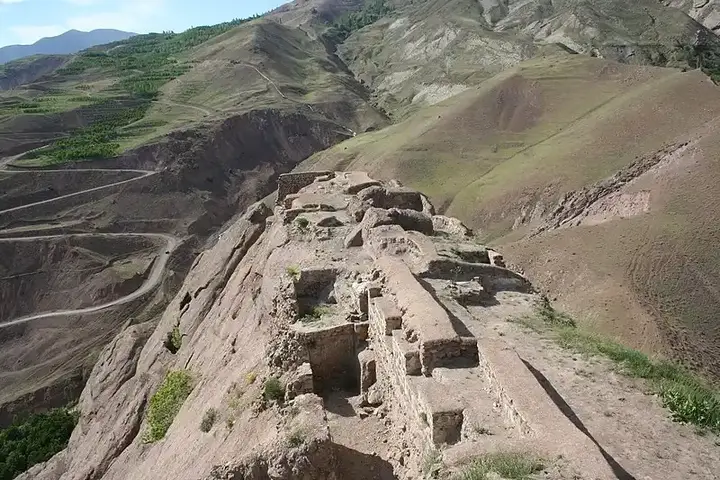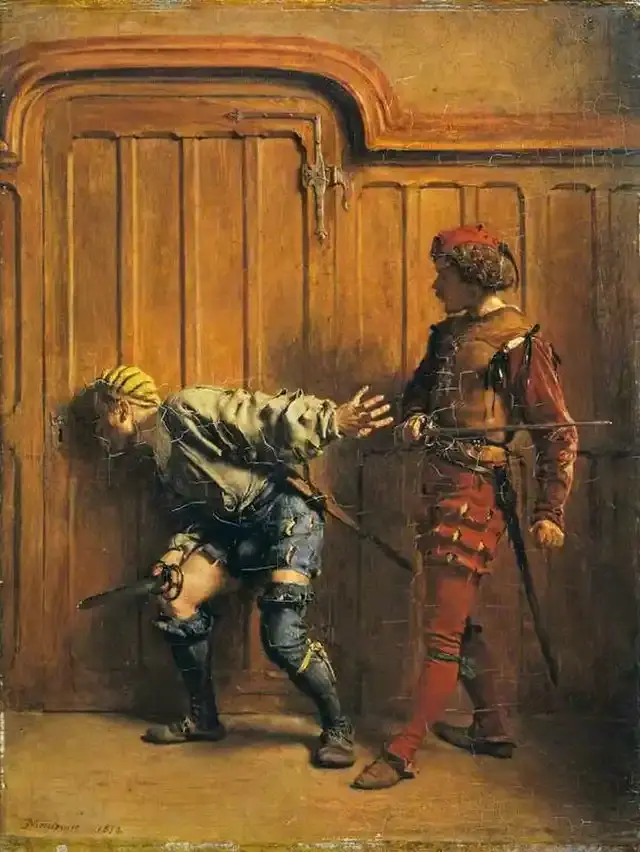The mysterious sect of the Assassins in the Levant
Junkies.. A mysterious sect revived by a drama series

The Assassins, also known as the Nizari Ismaili or Ismaili esoteric sect, was and still is one of the most mysterious and terrifying sects in Islamic history because of its excessive secrecy for a long period of time, even though almost a thousand years have passed since its existence.
Show key points
- The Assassin sect, also known as the Nizari Ismailis, is renowned for its secrecy and fearsome reputation in Islamic history.
- A recent Egyptian drama has re-ignited public and scholarly discourse around the Assassins by fictionalizing aspects of their legacy.
- Historians and scholars remain divided on whether the group were terrorists or ideological freedom fighters, reflecting a long-standing ambiguity.
- ADVERTISEMENT
- The Western narrative, largely based on Marco Polo’s tales, paints the Assassins as drugged fanatics manipulated by illusions of paradise.
- Professor Mohamed Osman Elkhosht challenges this legend, citing geographical impracticalities and a more philosophical purpose behind the group’s operations.
- After Hassan Al-Sabah’s death, leadership continued through generations, with each leader maintaining the group's mission and influence for nearly 150 years.
- The Assassins' power ultimately waned under the rule of Sultan Baybars, who subdued and controlled them before their final decline in 671 AH.
It has recently been revived on the tongues of people between supporters and opponents because of its adoption and history - the Assassin Troupe - as an idea to be inspired by an Egyptian dramatic work production, direction and acting to take from that troupe broad lines to tell a dramatic story in most of it, according to the expression of the makers of the work and that it is not a historical reference for the Assassin Troupe.
Recommend
*Assassins squad commando or hired killers?

To this day, we find a lot of inconsistency in people's opinions about the nature of the Assassin band, and I do not mean by people here only the general public, but also the writings of historians, for example, it is mentioned in the Western version of the history of the band taken from the tales of "Marco Polo", the most famous Western travelers, that the Assassin Band was a terrorist who carried out a lot of sabotage and assassinations of many senior Abbasid and Seljuk statesmen as well, including the minister "Nizam al-Malik Tusi", the Minister of the Seljuk State, and they also assassinated "Conrad" King of Jerusalem, and they were His followers carry out what he orders by giving them hashish so that their minds go and he convinces them of what he wants, after they are carried into designated places in the castle of "Alamut", which he controlled and made the movement's headquarters and equipped and designed to be a paradise on earth.
As soon as they see it, they are fully ready to order them anything and carry it out at the same moment without fear for their lives, which were not important to them after he showed them paradise for some time.
But Dr. Mohamed Osman Elkhosht, Professor of Philosophy of Religions at Cairo University, believes that it is impossible for Hassan Al-Sabah to have established this alleged paradise because of the topographical nature of the place of the castle of "Alamut" high above the mountain, which gave Hassan Al-Sabah the title of Sheikh of the Mountain, which was referred to by "Marco Polo", but there is another opinion that the Assassin Brigade, or it is better for this opinion, to refer to it as the Fedayeen Band or the Nizari Ismaili sect, was an invitation to the absent Imam "Nizar". Ibn Al-Mustansir Billah" after being captured by "Badr al-Din al-Jamali" – the Fatimid minister of al-Mustansir Billah and the first and strongest supporter of al-Musta'li Billah, the younger brother of Nizar – captured him in Alexandria prison, from which Imam Nizar rose – according to the opinion of the Nizari sect – and that he will reappear again as the awaited Imam Mahdi and that the life of Hassan al-Sabah himself in the castle of Alamut, which lasted 35 full years, was all a call for esoteric Ismailism, proselytizing and waiting for the absent imam, and that the secret operations and assassinations carried out by the band were to expand Da'wa in the Levant, Mesopotamia and Transoxiana and access to the greatest possible empowerment, as there were assassinations of the enemies of this call and those trying to eliminate it, one of whom was the "regime of King Tusi" the Seljuk vizier.
Division after the death of Hassan Al-Sabah

The idea that began in Alamut Castle did not end, after the end of Hassan Al-Sabah, his son "Kia Buzurg Amed" continued to call after him for 14 years until his death as well, and was succeeded by his son "Muhammad", whose reign was long and lasted 45 years and also ended with his death. They were also succeeded by the so-called "sheikhs of the mountain" who completed the march of da'wa that Hassan al-Sabah began until nearly 146 years had passed since his death.
The end of the Assassins in the Levant
The end of the Assassins began when he ordered "Zahir Baybars" to take taxes for the Assassins band as well as long as they are in the Levant and indeed this is what happened without much resistance from them and became apparent Baybars is the first controller in the Assassins band puts on their head who he wants and takes off who he wants and was not satisfied with that, but was seizing the castles of the Nizari over the years until the year 671 e year in which the state ended Nizari Ismaili and the Assassins band after it lasted for 185 years It almost leaves behind many questions that raise a storm of thought no less than the fear and anticipation raised by their fortified castles in the hearts of their enemies.








